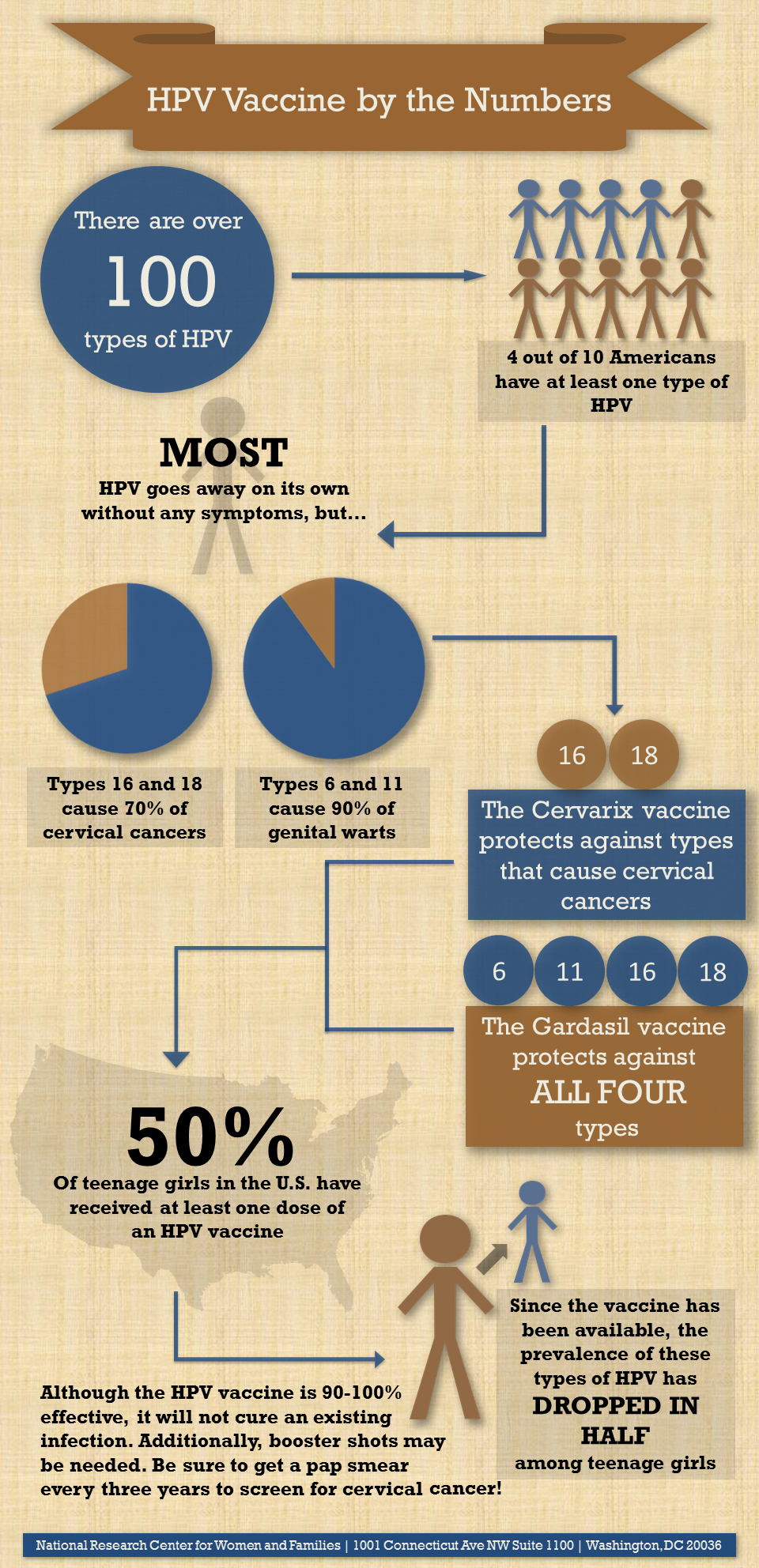Human papillomavirus (HPV) is the most common sexually transmitted infection (STI).
How is HPV Spread?
HPV is spread by having vaginal, anal, or oral sex with someone who has the virus. Most HPV infections do not have symptoms and can go unrecognized.
Why Should I Worry?
Most sexually active people become infected with HPV at least one time in their lives (CDC, 2015).
There are about 100 different types of HPV. Different strands of the virus cause different problems. Some can cause genital warts while others can cause precancers and cancers such as cervical, penile, and oropharyngeal.
In most cases, HPV goes away on its own and does not cause any health problems. But when HPV does not go away, it can cause health problems like genital warts and cancer.
What Does HPV Look Like?
Genital warts usually appear as a small bump or group of bumps in the genital area. They can be small or large, raised or flat, or shaped like a cauliflower. A healthcare provider can usually diagnose warts by looking at the genital area.
How Can I Protect Myself Against HPV?
You can do several things to lower your chances of getting HPV.
- Get vaccinated. HPV vaccines are safe and effective. HPV vaccines are given in three shots over six months; it is important to get all three doses.
- Women between 21 and 65 should get a routine screened for cervical cancer.
- If you are sexually active:
- Use latex condoms the right way every time you have sex. This can lower your chances of getting HPV.
- Be in a mutually monogamous relationship – or have sex only with someone who only has sex with you.
HPV Vaccine Guidelines
HPV vaccines typically come in a 3 dose series and are given over a 6-month period.
- Girls should can get the vaccine as early as 9 years, but typically start around 11-12.
- If you have not received the vaccine, girls and women aged 13-26 can start the series. It is also recommended that boys receive the vaccine as well.
- Boys can get the vaccine at age 9, typically recommended between 11-12 years but can be vaccinated between 13-21 years if they have not received the vaccine.
For more information, check out: http://www.cdc.gov/hpv/whatishpv.html







